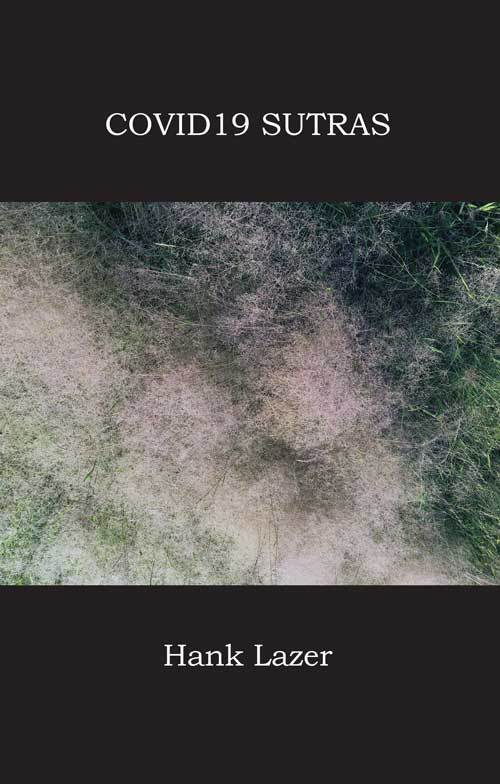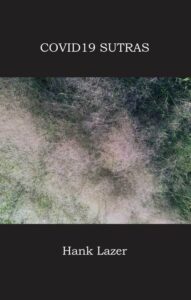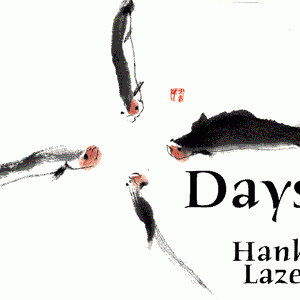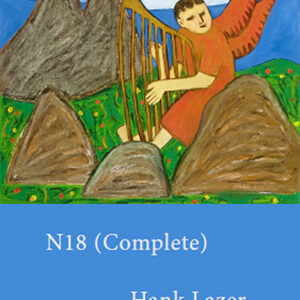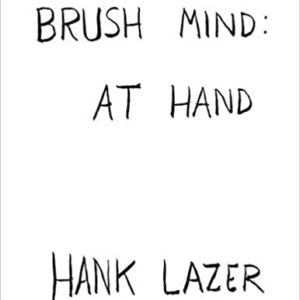Description
Writing within the tradition of wisdom literature, Lazer’s COVID19 SUTRAS presents a real-time engagement with the early phases of the pandemic, as that tragedy began to merge with the consequences of the death of George Floyd, Black Lives Matter, police brutality, and the increased awareness of the virus of American systemic racism. Lazer’s series of poems hold outrage and peace, anger and momentary joy within a shared space. In the tradition of Chinese poet Tu Fu, Lazer’s writing anchors itself in a path of sustained Zen meditation and pastoral rejuvenation as means toward balance and insight. As with Lazer’s most recent works – Thinking in Jewish, Brush Mind, Slowly Becoming Awake, and Poems That Look Just Like Poems – COVID19 SUTRAS continues his exploration of the nature of consciousness itself, and those momentary sudden inscriptions that are part and parcel of the grace of each human incarnation.
Hank Lazer precisely notates the passing of time through pandemic and uprising. Consciousness alights on each poem “like a butterfly drawn to a bright flower,” offering luminous company in dark times.
—Charles Bernstein, poet, author of The Pitch of Poetry
Hank Lazer’s poetry has always traced the ways we navigate time. In COVID19 SUTRAS, he writes into and through this time of crises in poems alternatively meditative and wild with grief. He takes a census of backyard birds before checking the death count. I’m grateful for the way he documents this complicated and perilous moment.
—Rae Armantrout, poet, author of Wobble and Conjure
In this gorgeously powerful book, Hank Lazer, one of our great poets, turns his attention to the Covid 19 pandemic. Lazer’s brilliant language opens and deepens; his awareness gives us strength; his poems’ layers and pathways arrange the essential, and horrifying, facts, thereby enacting and embodying emotion and thought, teaching us to feel and think in and through the impossible. Lazer writes: “yes I will / go up to / the stars / this language // that we are / goes only so far / in peril / of the invisible // quiet running water / yes / I will go up / to the stars” and “so that the words / equality justice democracy / mark something other / than our shame // pain goes straight / to our emptiness.” COVID19 SUTRAS is profound and magical, and to say that these poems are wise and humane is a radical understatement, like saying that water is helpful to life.
—Joseph Lease, poet, author of The Body Ghost
“There is something underneath it all.” As the world surrendered to panic and despair Hank Lazer sat, listened and recognized something more substantial beneath the noise. The Covid-19 virus has brought him to a new place in his poetry that is experimentally spontaneous while remaining true to the Buddhist aesthetic of seeing things as they are and rendering that reality in words. Though words may ordinarily distance us, these poems make the world immediately available. What we have in these sutras is the moment of creation, the opening through which everything emerges. From that moment we receive hope and consolation: “my door way is darkness/ i trust the night time/ my door way is early morning/ i trust in the light”. There is a clarity here that sustains us despite the daily onslaught of information and hype. Lazer does not seek to escape it, he notices that he too is caught in that tide, but he sees through all of it a deeper demand, a “call to change,” and perhaps some sense of resolution. First and last, he remains a poet working at human being, who remembers that whatever may come we must “rest/ in the openness/ of mind.”
—Jake Berry, poet, musician, artist, and author of Brambu Drezi
“It is difficult / to get the news from poems / yet men die miserably every day / for lack / of what is found there,” wrote William Carlos Williams. Hank Lazer’s new book, published in the middle of a pandemic, brings us the news in the way that 18th century ballad broadsides did to Londoners. Quatrain by quatrain, Lazer sings the present world, its viruses (covid and structural racism), and its beauties (animals, friendship, the shape of a sentence). Navigating a path between journalism and sacred text (the sutra), Lazer reaches for a middle way—call it survival—in this difficult time.
—Susan M. Schultz, poet, author of I Want to Write an Honest Sentence
A distant and yet direct echo of the alarm gong first sounded by Thoreau, Lazer’s poems trace an unmistakable tree ring in our shared memory, a record of our collective experience with the COVID-19 as a disastrous fallout of the industrial haste and waste forewarned by the New England sage many reincarnations ago. Ironically, in these quiet quatrains, we feel the urgency to hurry, to stop the cycle of destruction, and to cleanse the world of lies and the Liar. In Lazer, we find a poetic soul patient as a rice counter, vigilant as a firefighter, and visionary as a prophet.
—Yunte Huang, author of Charlie Chan
In COVID19 SUTRAS Hank Lazer resumes his ongoing project of thinking as/with/through/in the poem. These lucid quiet short lyrics live in peril/of the invisible, against a background of birds, dogs, and pastoral landscapes. My doorway is darkness/I trust in the night/my doorway is early morning/I trust in the light. To engage fully with the world as it is now, beyond the destabilizing clatter of the daily news cycle, we need what these poems offer: sanity, and deep care. I love this world/more/than I had thought.
—Norman Fischer, Zen priest, poet, author of author of on a train at night and untitled series: life as it is
I imagine I join many who are celebrating with you this deeply meaningful culmination and contribution. I like to think it’s you joining the demonstrations—a poet in the time of two viruses-becoming a lived answer to your question what to do. When the future seems “contracted into now and the next few months” I was grateful to join you on a sutra-linking journey for finding one’s way forward into greater openness and hope.
—Dr. Linda Goodman, psychoanalyst
In COVID19 SUTRAS, Lazer’s thread of close attention (i.e., love) companions us along the razor’s edge. As we “check the daily/death count” and wonder “who/will be/the last person/with [us],” Lazer stops to see the gifts of our lives reflected in forms from “cold rain to/coltrane,” and a “greening hillside” where a “young dog runs.” He reminds us that, if we can let it, “pain becomes a window” and that in this time of “finding a way/to be/quiet/again,” we might “return to/the breath/which is everyone’s.”
—Gillian Parrish, poet, author of supermoon and of rain and nettles wove
The treasury of days chronicled here in sutra, like Avalokiteshvara in prayer, represent canonical hours of keeping the faith, daily observations in the fullness of quarantined time. It continues Lazer’s ongoing meditations on developments in the natural world in response to the infected body politic. This is a true account of economy, devotion, and the stations of incremental knowing that take root in the evening and the morning light, transmission and proximity, environment and humanity, care of animals and the soul, and all the phenomena between them.
—Glenn Mott, poet, author of Eclogues in a Mustard Seed Garden
Simply put I found these words are a requiem for the living and dead. Poetry masterfully choreographed that speaks to our past, present and future selves. I loved this work.
—Cornelius Carter, choreographer, and a US Case Carnegie Professor of the Year
When Hank Lazer writes in his new COVID19 SUTRAS, “my door way is darkness/ i trust the night time/ my door way is early morning/ i trust in the light” [in delight] or “be/ hold the day/ which i/ can/ not contain” I immediately feel that poetry exists. And it exists in its manifold variations as a work forever in progress, beyond ourselves, shifting and moving along whether as visual or linear writing, in its ability to sustain a reader’s interest and to me interest in devotion.
—José Kozer, poet, author of Of Such A Nature / Índole, a Montgomery Fellow, and recipient of the Pablo Neruda Prize for Poetry
“The world is too much with us; late and soon…” Wordsworth invented the Romantic ache but we inhabit the whole howl now. The prescient poems of Hank Lazer’s instant classic, COVID19 SUTRAS, kept re-minding me that the alphabet of our DNA is a mere four letter seismic syncopation and that a virus unzips and re-sutures the protein strands of life with atonal improvisations of our demise. These sutras steep us in the sentiment of loss and the sentimental power of belonging to longing. Though slight, these mere slips of the tongue tease these lines. They too are too much with us. They stick. They sting. They singe. They sing. They machine, in their elegance and élan, the out of tune harmonic of this time and this place. Each is a tap and die tool set that creates a threaded telling string theory for our unraveled and unraveling world.
—Michael Martone author of Brooding and The Moon Over Wapakoneta



